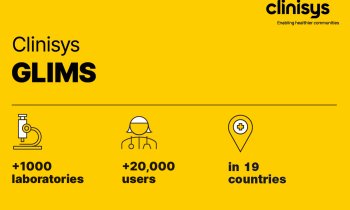Making public hospitals more attractive for practitioners
Annick Chapoy reports from France
Following fierce parliamentary debates last spring, the newly enacted law on Hospital reform is beginning to show concrete moves. One of these is to modify the remuneration system for doctors, in order to reinforce the attractiveness of public hospitals, which are suffering recruitment difficulties.
Until the 1980s, four out of five assistants or head-clinicians trained in academic hospital centres chose to work in hospitals. This proportion is now reversed; most graduates choose to enter private practice.
On average, the rate of vacant posts for practitioners in public hospitals has reached 20%, with peaks up to 32% in certain areas of the country; and it can be very high in some specific medical specialities (35% for medical imaging, 25.4% for psychiatry). This phenomenon has led hospital directors to hire doctors -- referred to as ‘mercenary practitioners’ -- on a temporary basis at very high cost (€600-700 per day). The new contracts aim to combat the tendency for hospitals to use practitioners who are not submitted to practise evaluation or control.
To improve and modernise the recruitment policy, the government plans to offer, as early as 2010, a model ‘hospital clinicians’ contract that would run for one year and be renewable up to five years. That new status would come in addition to the HP (hospital practitioner) status designed in 1984.
This decision was taken in view of a study conducted for the Health Ministry by Elie Aboud, cardiologist and Member of Parliament. The new contracts will stipulate that one portion of the physician’s salary will be variable. The report recommends a variable part of salary also for the Hospital Practitioner, to be linked to a more flexible work time and the fulfilment of targets.
According to the report, one third of hospital salaries are already varying, but the salary structure lacks transparency.
The new contract could be opened to HPs, to doctors working in private practice (provided they commit themselves to work full time for the hospital) and to hospital interns (housemen) arriving at the end of their curriculum.
Elie Aboud has recommended that these individual contracts should only apply to hospitals facing a shortage of practitioners, and for medical specialities really under-represented.
The contract terms would be established by the hospital and validated by the ARS (regional health agencies), created by the law ‘Hôpital, Patients, Santé, Territoires’ (HPST). The contracts should include commitments on qualitative and quantitative results. It would guarantee a higher pay and a more important varying section of the salary.
To prevent escalation in remunerations, the report suggests that the ceiling should be the statutory salary given to a HP at its highest grade, plus 30%, which would amount to €9,500 monthly. The fixed portion of the salary would be equivalent to the 8th grade of the HP salary, i.e. €5,300.
The report also calls for a revision of Hospital Practitioner’s status. Created in 1984, this status does not sufficiently take into account the doctor’s ‘commitment and personal initiative’. The 1984 status was supposed to guarantee some homogeneity in remunerations, but in fact the pay differential is from one to five in general hospitals, and from one to 10 in CHU (academic hospital centres). Radiologists receive the highest salary in public hospitals (€14,000 euros monthly) followed by surgeons. Paediatricians and psychiatrists are paid less.
Some medical unions have expressed fear that the new ‘hospital clinician’ status might overtake the HP status. They have demanded a strict limitation of recruitments for hospitals showing the most urgent needs.
The FHF (Fédération Hospitalière de France) and hospitals managers have been active to obtain more flexibility for hospitals directors in their recruitment policy.
12.11.2009










